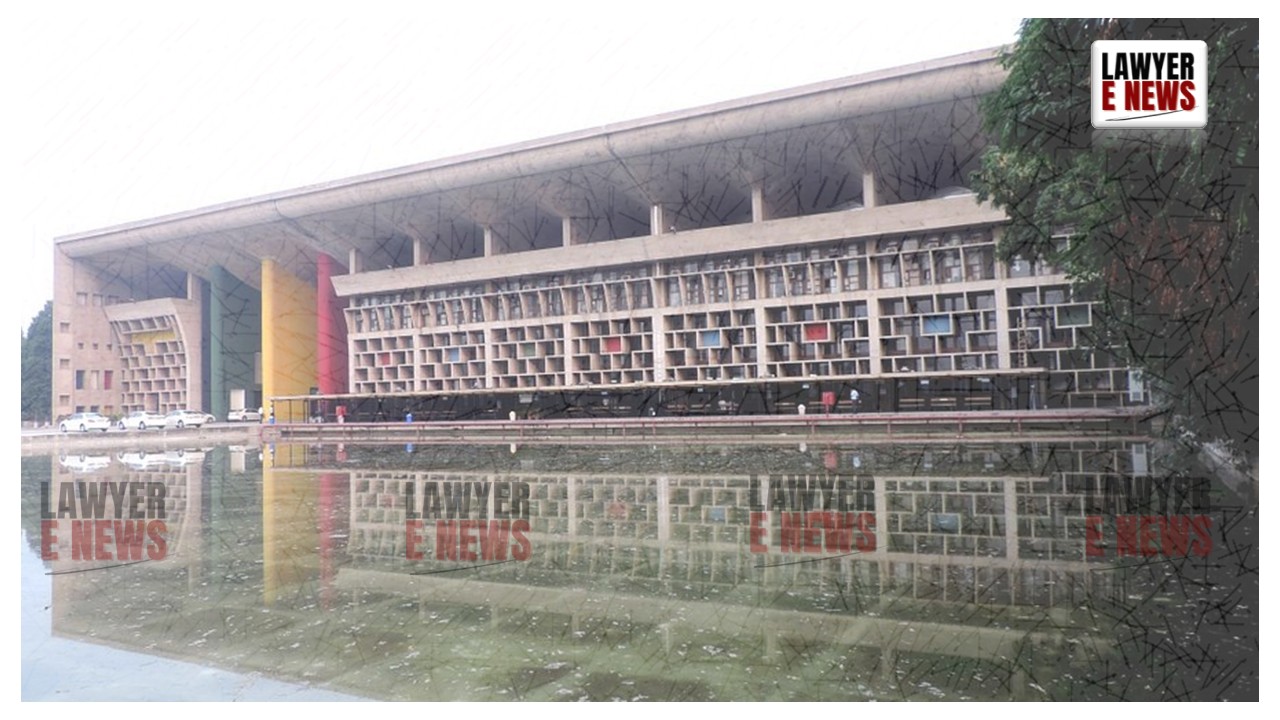-
by Admin
27 February 2026 12:46 AM



“Everything stinks of deceit and fraud… It is the bounden duty of courts to turn the clock back when a fiduciary exploits his agency to benefit his own family” - In a compelling verdict safeguarding the rights of non-resident Indian property owners, the Punjab & Haryana High Court dismissed a second appeal filed by a brother of the original landowner and upheld the setting aside of fraudulent sale deeds executed by a power of attorney holder. The Court confirmed that the attorney had grossly violated his fiduciary duties, alienating the property to his own relatives without any authority or necessity.
Justice Vikram Aggarwal, in a 36-page detailed judgment, held that the sale deeds executed by the plaintiff’s GPA holder (his wife’s brother) were “the result of fraud and criminal conspiracy”, and emphasized that: “The execution of sale deeds... stands proved to be fraudulent. Everything stinks with deceit and fraud. Under the circumstances, it is the bounden duty of courts to turn the clock back—which the first appellate court rightly did.”
“Fiduciary Authority Must Be Exercised in Good Faith, Not to Enrich Your Own Kin”
The dispute concerned 49 kanals and 10 marlas of land owned by Kuldip Singh, a resident of the United States, who had executed a general power of attorney on 19.06.2001 in favour of his brother-in-law Balwinder Singh for property management purposes. Within days of receiving the GPA, Balwinder sold the entire land to his own brother-in-law, Avtar Singh, for a grossly undervalued consideration. Avtar then resold the land to Nirmal Singh, the plaintiff’s own brother, with whom Kuldip already had legal disputes pending in the US.
The High Court found that the sale deeds were orchestrated solely to transfer property to family members at throwaway prices, in complete breach of fiduciary duty. Refusing to treat the transactions as lawful, the Court observed:
“Looking from any angle, the sales appear to be suspicious and fraudulent. Nothing else would explain the alienation... to the GPA holder’s brother-in-law, who in turn sold to the plaintiff’s own estranged brother.”
“Once the Sale Was Fraudulent, No Protection Can Be Claimed Under a Registered Deed”
While the appellant Nirmal Singh argued that the registered sale deeds enjoyed presumptive validity, the Court noted that such presumption does not extend to transactions tainted by fraud. The Court held: “Registered sale deeds cannot be shielded from scrutiny when fraud, collusion and breach of agency duties are clearly pleaded and proved.”
Moreover, the Court rejected the argument that the GPA contained a power of sale, holding that even where such authority is nominally given, the intent and necessity of the transaction must be demonstrated.
Quoting the Lahore High Court in Mt. Jan v. Mt. Fajjan, the Court reinforced the settled position: “Powers of attorney must be strictly pursued, and are construed as giving only such authority as they confer expressly or by necessary implication.”
“Failure to Rebut Allegations is Fatal—Ex Parte Decree Justified Where Defendants Stay Silent”
All the defendants, including the GPA holder and the intermediate purchaser, chose not to contest the suit, and were proceeded against ex parte. The High Court held that this non-participation amounts to an implied admission of fraud:
“The defendants chose not to contest the suit and not to enter the witness box. They did not produce any evidence... By not contesting the suit, the defendants in a way admitted the case of the plaintiff.”
The trial court had originally dismissed the suit on technical grounds, but the first appellate court reversed the decision, setting aside the sale deeds—an outcome now affirmed in second appeal.
“Plaintiff’s Wife Was a Competent Witness—Section 120 Evidence Act Applies”
The appellant had also questioned the absence of the plaintiff as a witness. Rejecting this technical objection, the Court held that Amarjit Kaur, the plaintiff’s wife and power of attorney holder who had stepped into the witness box, was fully competent under Section 120 of the Indian Evidence Act, 1872.
“Amarjit Kaur, wife of the plaintiff, was duly authorized and competent to depose on his behalf. Once she entered the witness box, it cannot be said that the plaintiff was remiss in pursuing his case.”
“Agency Was Exploited for Personal Gain—Repudiation Under Section 215 Contract Act Fully Justified”
Citing Section 215 of the Indian Contract Act, 1872, the Court upheld the right of the principal to repudiate any transaction where the agent acts without consent and for personal advantage: “The GPA holder acted prejudicially to the plaintiff’s interests. The sales were made without necessity, without consent, and to relatives. Section 215 squarely applies.”
Date of Decision: 01 April 2025
